Veterinary & Biosecurity
Mak, Alfasan Sign Anti-Tick Vaccine Production MoU
Published
4 years agoon
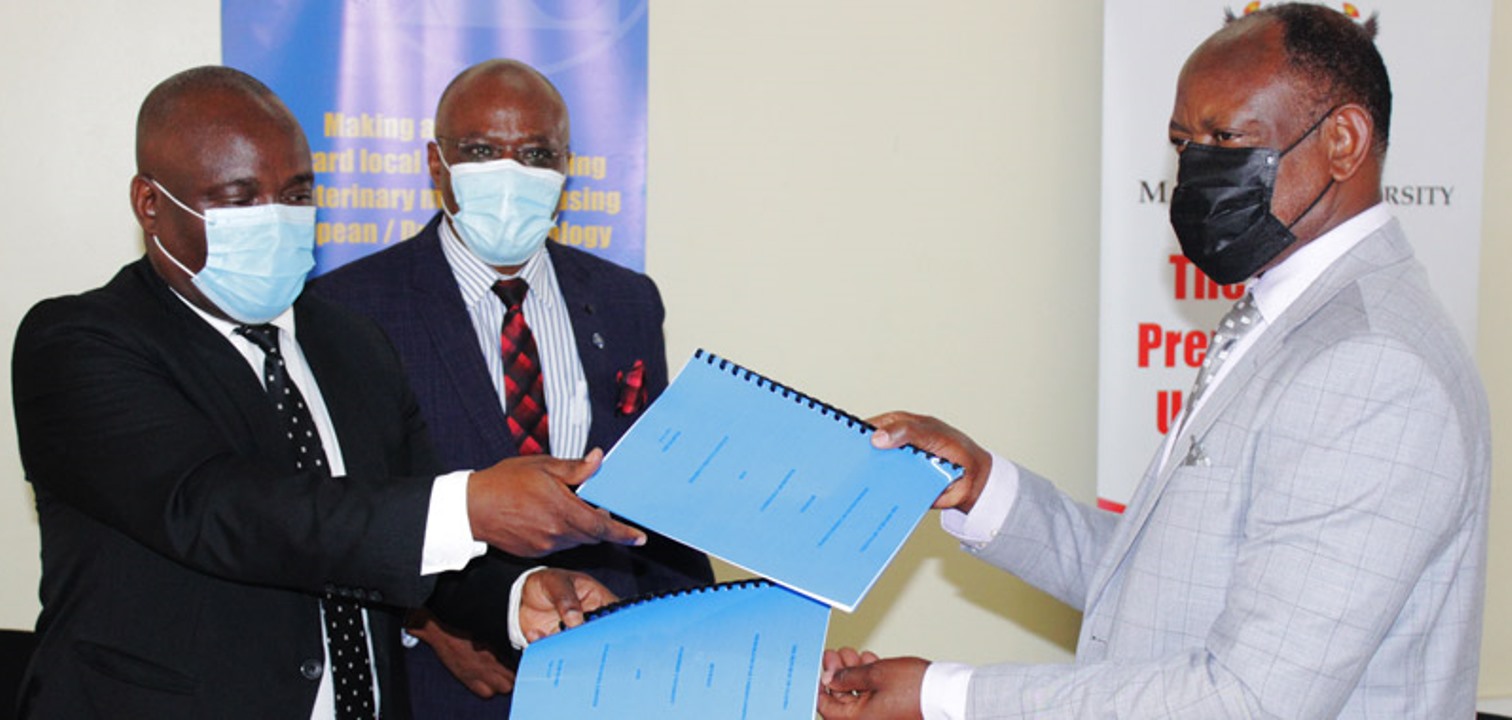
Makerere University on Friday 19th March, 2021 signed a Memorandum of Understanding (MoU) with Alfasan Uganda Limited to facilitate production of test batches of the Anti-Tick Vaccine developed by the College of Veterinary Medicine, Animal Resources and Biosecurity (CoVAB). The MoU was signed on behalf of Makerere University by the Vice Chancellor, Prof. Barnabas Nawangwe and on behalf of Alfasan by the Managing Director Dr. Stephen Birungi. The Principal CoVAB-Prof. John David Kabasa, Anti-Tick Vaccine Initiative Principal Investigator (PI)-Dr. Margaret Saimo-Kahwa and Acting (Ag.) Manager Intellectual Property Management Office (IPMO)-Canon Goddy Muhumuza signed as witnesses.
The Anti-Tick Vaccine Initiative is hosted under the Centre for Biosecurity and Global Health, CoVAB. According to the Prof. Kabasa, the Centre was one of the milestones endorsed by the University when the then faculty to college transition was proposed. “I am happy to report that the Centre is being vigorously supported by the Government to undertake activities of vaccine development together with other scientists.”
He thanked the Vice Chancellor always taking keen interest in the multidisciplinary programmes undertaken by the college with a view improving the livelihoods of both small and large scale livestock farmers. He equally lauded the CoVAB scientists for their efforts to develop the Anti-Tick Vaccine and stakeholders such as the Africa Institute for Strategic Animal Resource Services and Development (AFRISA), Centre of Tropical Medicine and the Ruth Keesling Wildlife Health, Research and Outreach Centre (RK_WHERE) for their support.
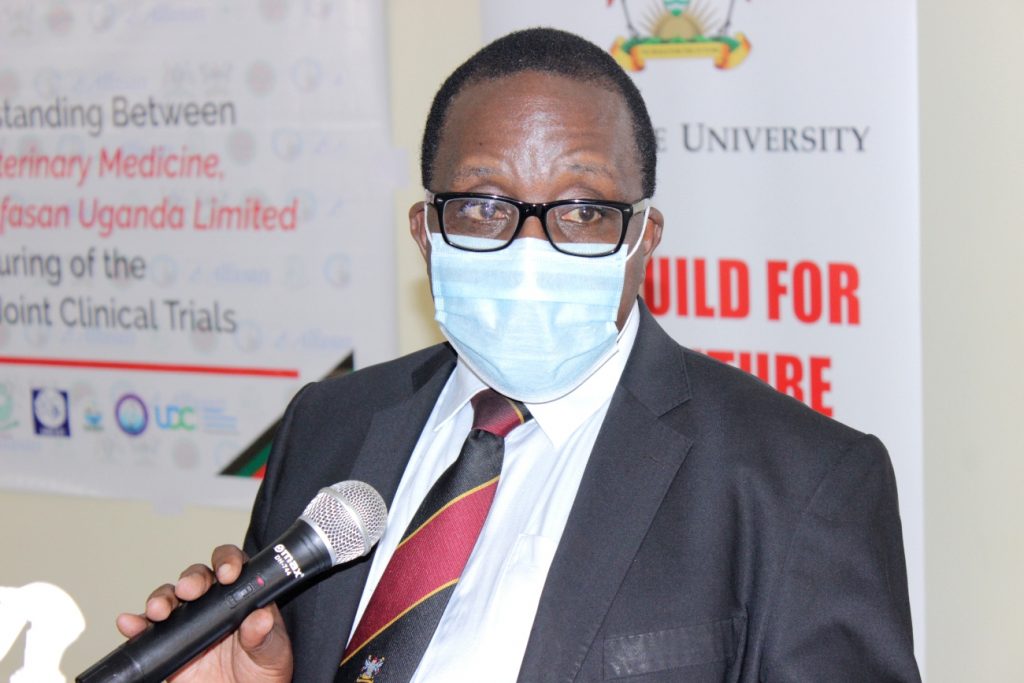
Unveiling the research challenge and solution, the PI Dr. Margaret Saimo-Kahwa noted that ticks as vectors for diseases like East Coast Fever are an economic threat to farmers with herds of exotic breeds, their crosses and increasingly, local breeds raised in a tick-free environment. Furthermore, common tick species in Uganda have developed resistance to acaricides used in spraying as a method of their control. This resistance is further exacerbated by acaricide contamination of the environment, leading to residues in animal products like milk and meat, which have implications on human health.
“Therefore, alternative methods like anti-tick vaccines that reduce the use of acaricides are urgently needed to protect the livestock sector that plays a role in poverty reduction and contributes at least 3.2% to Uganda’s GDP, which is equivalent to about 1 Trillion Uganda Shillings” said Dr. Saimo-Kahwa.
The efficacy of any innovation is measured by how well it has worked elsewhere. The Anti-Tick Vaccine Initiative therefore sought inspiration from Australia, where the first anti-tick vaccine was developed in the 1980s as well as Cuba where the vaccines have been used successfully for over 20 years. Gleaning further from Brazil, the team used biotechnology approaches to develop antigens that can target the ticks in Uganda.
“Testing of these molecules under laboratory conditions with funding from the Government of Uganda has been done” remarked the Principal Investigator before adding, “The next step is to test these molecules in clinical trials. However, the molecules should be manufactured under Good Manufacturing Practice (GMP) and not under laboratory conditions.”
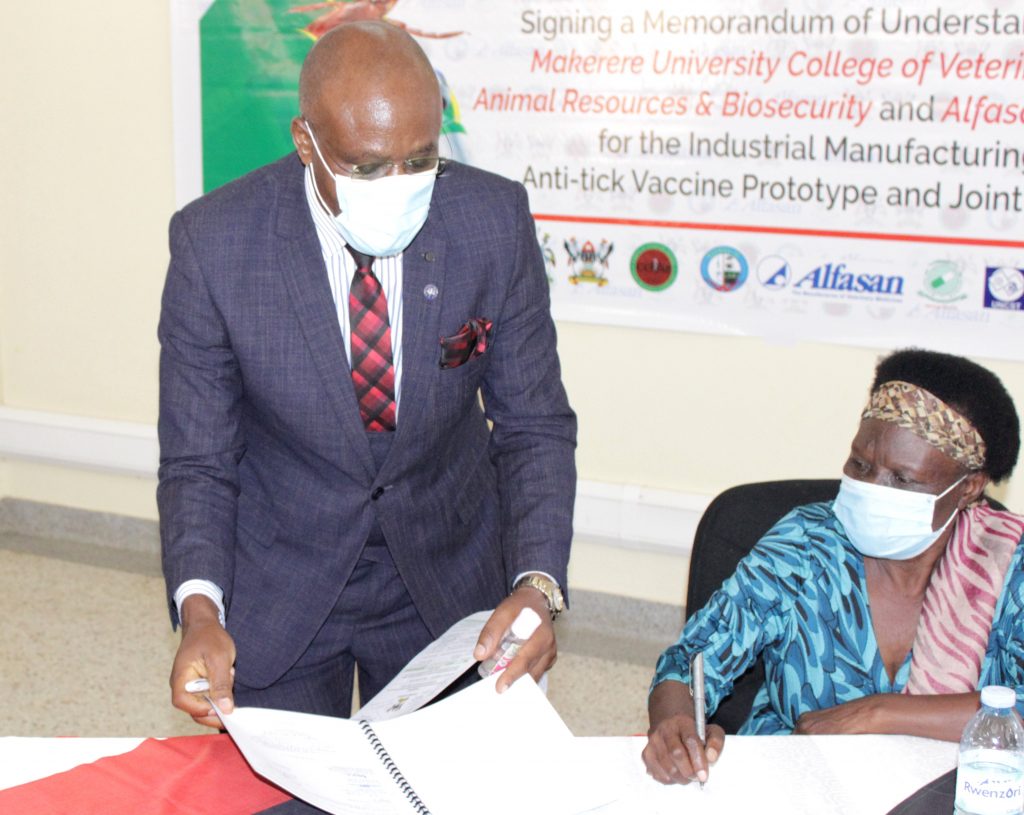
Dr. Saimo-Kahwa at this point thanked the President, H.E. Yoweri Kaguta Museveni, whose advice led the research team to the GMP-certified Alfasan Uganda Limited. “These negotiations have been fruitful, leading to the drafting of a memorandum of understanding for production of test batches of the potential vaccine, with funding from Government of Uganda.”
Dr. Stephen Birungi a Makerere University alumnus from CoVAB was all praises for his alma mater and commended Prof. Barnabas Nawangwe for ushering in era of innovation in the short time he has served as Vice Chancellor. “If we are seeing a threat to the livestock industry, we need to act now to save the 20-30% of Uganda’s 15million head of cattle that we lose annually due to tick-borne diseases.”
He reassured all present that Alfasan, a private company certified for the production of veterinary biologicals, was fully committed to improving the livelihood of Ugandan livestock farmers by partnering with the Government of Uganda and institutions such as Makerere University.
“Alfasan as a factory that was born out of partnership between Uganda and Holland is ready to give the facilities that will convert this beautiful innovation from Makerere; once again proving that Makerere is not just a theoretical teaching institution but is ready to bring out those products that can change lives in our country” affirmed Dr. Birungi.
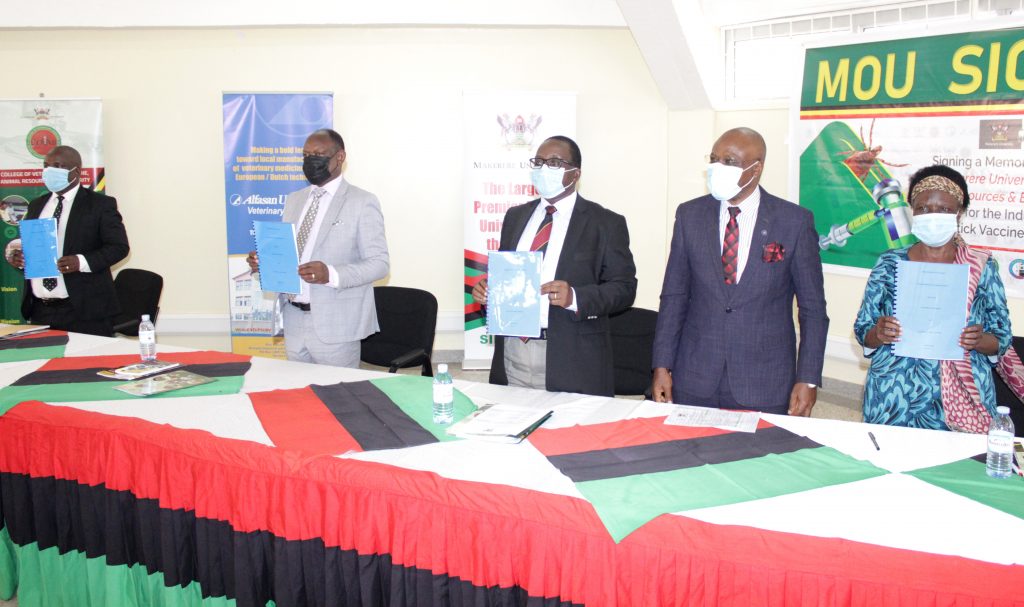
He thanked Makerere University for recognizing the need to produce homegrown vaccines, noting that imported batches tend become less efficacious after multiple applications due to varying protein compositions of the ticks in countries where the remedies originate and Uganda.
“It is therefore important that Government doubles the effort to support CoVAB and Makerere University so that we don’t only stop at this solution but go out and solve even bigger problems using research that has been proven such as this anti-tick vaccine” Dr. Birungi added.
Makerere University is home to a number of innovations, whose number keeps growing thanks to generous funding from the Government and other partners. In recognition of the need to translate these innovations into commercially viable products, the University introduced an Intellectual Property Management Office and appointed Canon Goddy Muhumuza as Ag. Manager. Guiding the MoU signing ceremony, Canon Muhumuza, who also doubles as Principal Legal Officer, made specific mention of the clause on “Ownership” clarifying that Makerere University shall own the patent of the vaccine.
“A new dawn is setting on Makerere University. Makerere University is becoming a truly international research university,” commenced the Vice Chancellor as he made closing remarks following the brief MoU signing and exchange ceremony.
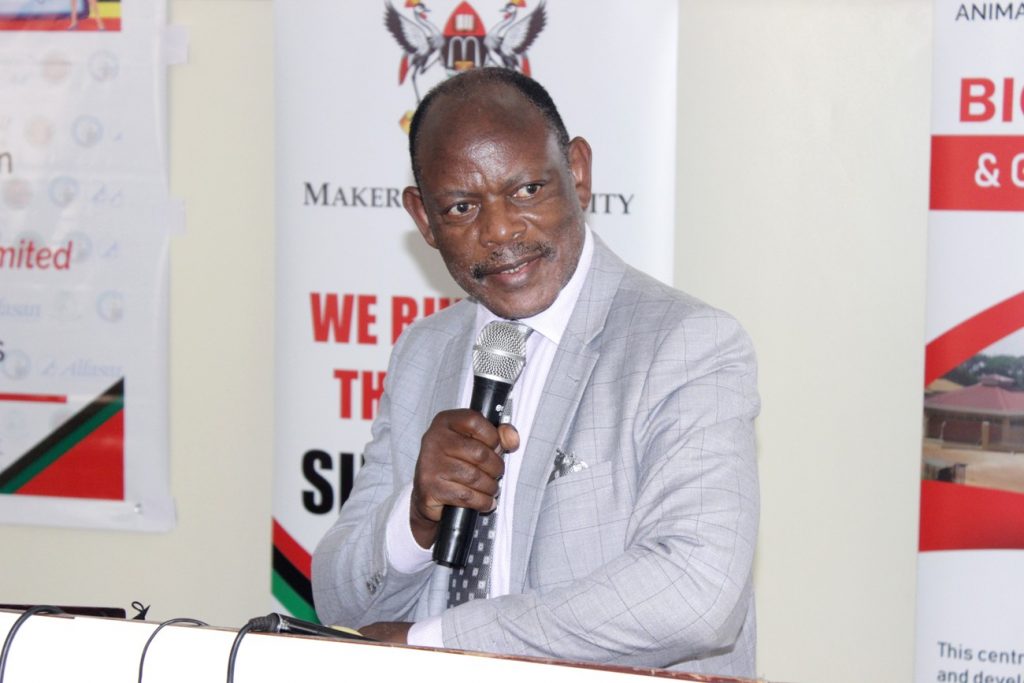
He thanked Dr. Saimo-Kahwa for her great work and mentorship as shown by the constitution of her team, mainly made up of young people. The team is made up of Scientists; Dr. Olaho Mukhani William, Dr. Kokas Ikwap, Dr. Mukiibi Herbert, Dr. Ochwo Sylvester, Dr. Musadha Zachary and Mr. Peregrine Sebulime.
In order to study the life and breeding cycles of ticks, the Initiative included a specialist (Acarologist), Mr. Charles Ssekitto. Technicians who form part of the team include; Mr. Geoffrey Ssentamu, Mr. Nalumenya David, Ms. Namubiru Sarah and Mr. Abubaker Musoba. Mr. Gerald Brooks Musinguzi is in charge of Communication while Ms. Kaudha Rose is the Administrator.
The Vice Chancellor noted that the capacity to develop vaccines was evidence of attaining to the highest levels of research capacity and expressed great pride to learn that the team was completely Ugandan. He thanked the Government of Uganda for the heavily investing in research at Makerere University and reminded staff of their obligation to give back to the taxpayers by providing good accountability.
“I must thank the leadership of the college for the great work they are doing. Professor Kabasa is passionate about Makerere and Uganda and what we should be doing to develop our country” remarked Prof. Nawangwe.
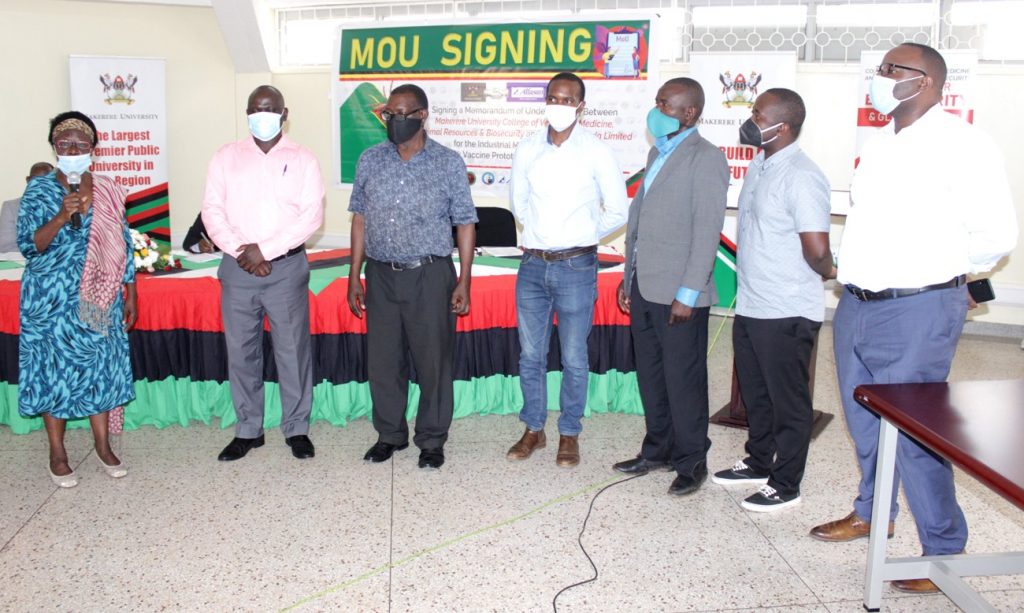
Results from the trials conducted so far showed that the overall efficacy of the vaccine candidate proteins was 86% for R appendiculatas (the brown ear tick) that transmits East Coast Fever (ECF) and 53% for R decoloratus that transmits Babesiosis. “If this vaccine can reduce the burden of tick borne diseases, we will have through one single innovation made a huge contribution to solving one of Uganda’s biggest problems.”
Prof. Nawangwe thanked Alfasan Uganda Limited for being pioneers in implementing academia-private sector collaboration. “As we come up with more innovations and move towards being a research-led University, it is inevitable that we have to work with the private sector, and I thank Managing Director for this gesture… you are a good alumnus.”
This MoU marks the beginning of a long and mutually beneficial partnership between academia and the private sector. The Anti-Tick Vaccine Initiative intends to expand the immunization to include more animals and carry out a clinical trial to determine the appropriate dosage and schedule. Furthermore, the Anti-Tick Vaccine candidate proteins offer more opportunities to include other candidate vaccine proteins of other cattle diseases into the combination.
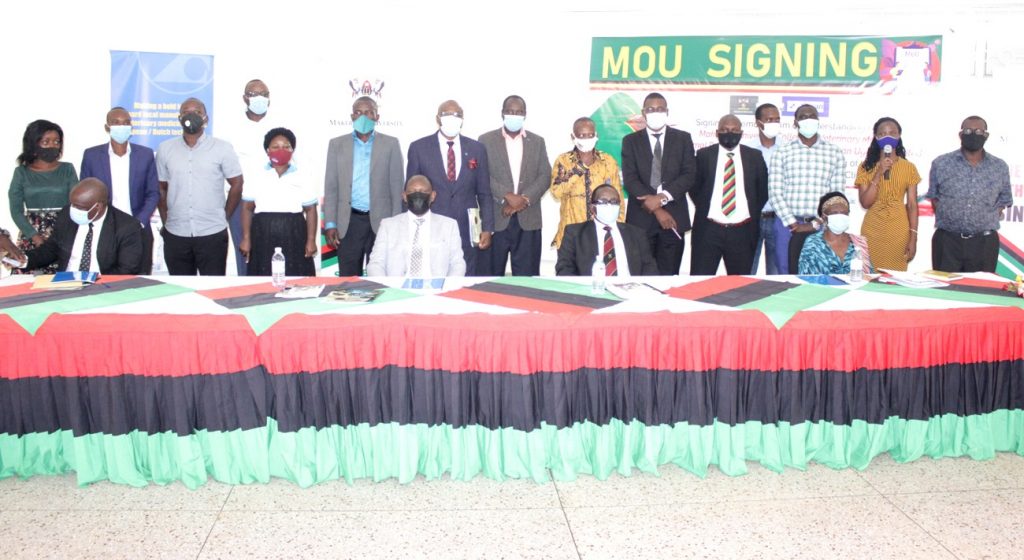
The event was moderated by the Principal Public Relations Officer, Ms. Ritah Namisango and the Communication Officer CoVAB, Mr. Gerald Brooks Musinguzi.
Article by Public Relations Office
You may like
-
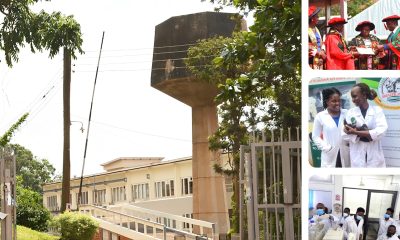

CoVAB Annual Report 2024
-
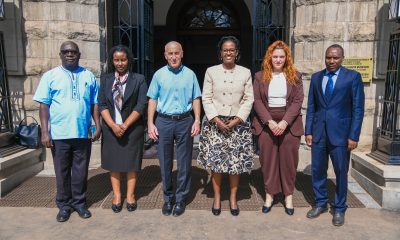

Israeli Ambassador Lotem Talks Innovation on Farewell Visit
-
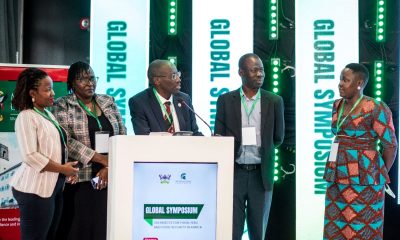

Mak and MSU Host Landmark Symposium on Insects for Food, Feed, and Food Security in Africa
-
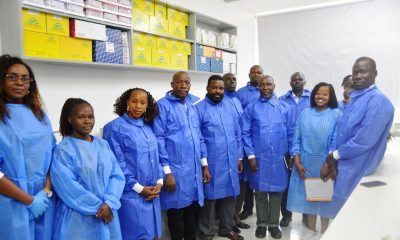

Makerere Receives Scientific Equipment worth over UGX 1.4 Billion
-
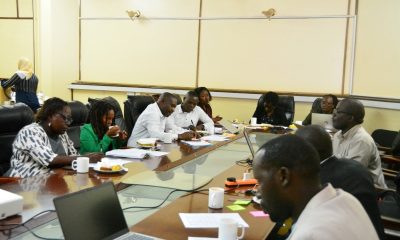

Experts Discuss Climate-Smart Agriculture and Livestock Feed Innovations in Uganda
-
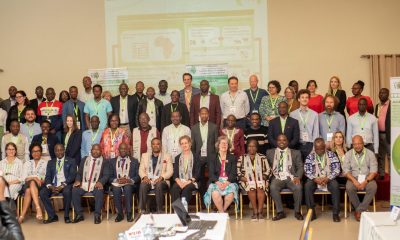

PREPARE4VBD Project Holds Final Workshop in Uganda; A Landmark in Vector-Borne Disease Preparedness
Veterinary & Biosecurity
CoVAB Annual Report 2024
Published
3 weeks agoon
June 30, 2025By
Mak Editor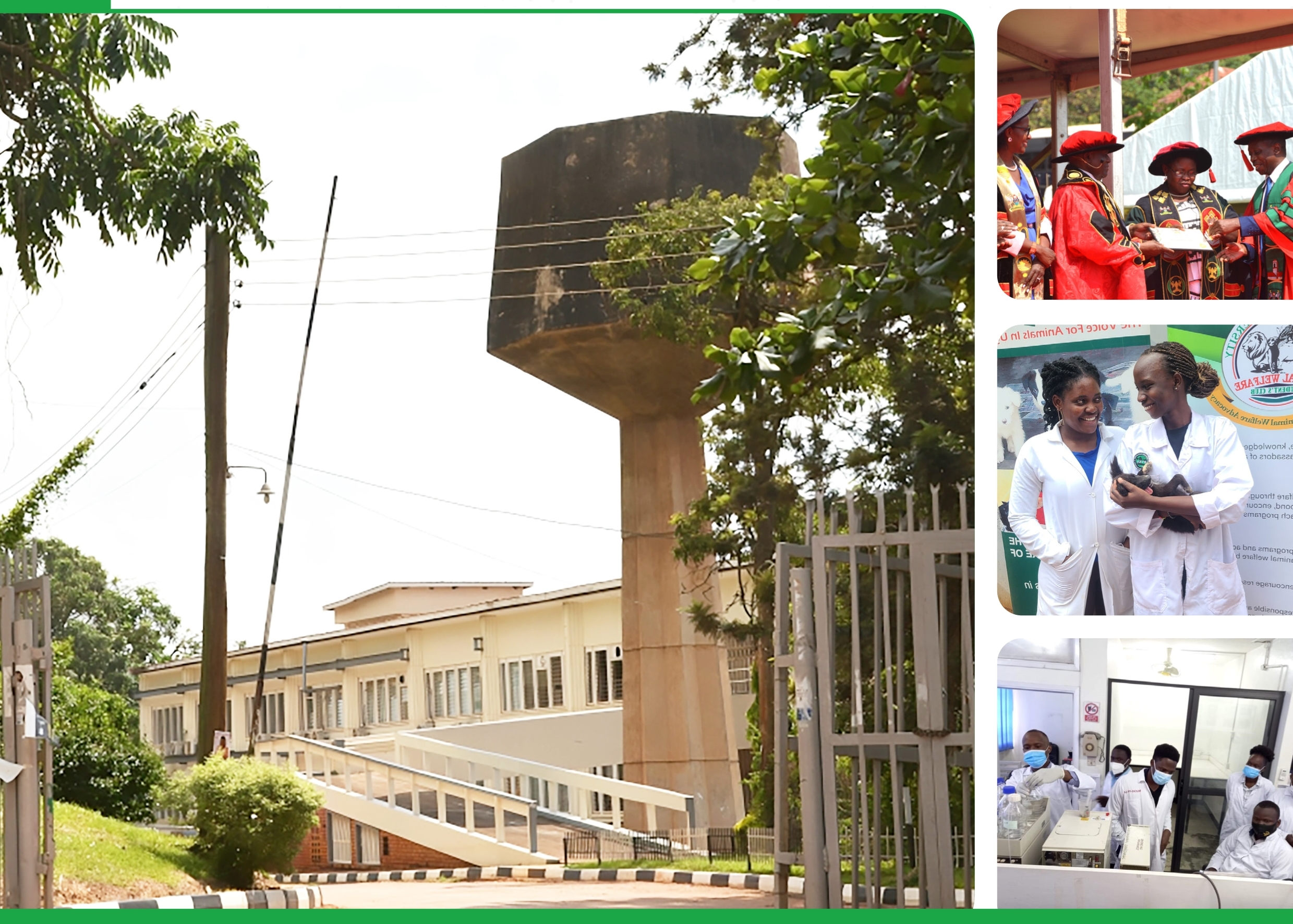
It is my pleasure to share the Annual Report for the year 2024, highlighting the various milestones realized in the College of Veterinary Medicine, Animal Resources, and Biosecurity. First and foremost, I wish to congratulate all of us for the dedication and effort rendered in the running of the college during the period. This collective commitment enabled us to excel in several areas, in line with the mandate of the college and Makerere University at large.
Our mandate teaching and learning, research and innovation, as well as knowledge transfer and partnerships, has been diligently pursued through the concerted efforts of all stakeholders, students, teaching staff, administrative teams, and valued partners. The college takes pride in the contributions made by our partners, who continue to support us in fulfilling this mandate. We particularly appreciate Norbrook (U) Ltd, which has consistently recognized the best-performing veterinary students with cash prizes annually since 2021.
Among the key achievements in 2024 was the expansion of research facilities at CoVAB. The college successfully established new, state-of-the-art laboratories, including an advanced Biomarker Discovery and Translation Research Laboratory, which continues to lead in developing point-of-care diagnostic kits for infectious and noncommunicable diseases, including cancer. The Biomarker Discovery and Translation Research Laboratory at CoVAB represents a significant leap in biomedical research and innovation. This state-of-the-art facility is dedicated to identifying and translating biomarkers into point-of-care diagnostic kits for both infectious and non-communicable diseases, including cancer. In this regard, CoVAB is poised to make tremendous contributions and impacts in advanced diagnostic development through rapid, accessible, and cost-effective diagnostic tools that can be used in both human and veterinary medicine, thereby contributing to improving early disease detection and treatment outcomes.
In the area of interdisciplinary research, the laboratory fosters collaboration among veterinary scientists, medical researchers, and biotechnologists, ensuring a holistic approach to disease management. Given the increasing prevalence of zoonotic diseases, the lab plays a crucial role in bridging veterinary and human health research, contributing to global health security and supporting One Health initiatives. Other achievements at the college are visible in groundbreaking research projects, with several initiatives launched, including studies on zoonotic disease prevention, vaccine development, and drug action mechanisms.
In the area of community outreach, the college expanded its livestock health programs, providing veterinary services to rural communities and enhancing disease surveillance. This is coupled with the increased international Collaborations where CoVAB strengthened partnerships with global institutions, securing funding for One Health initiatives aimed at tackling emerging health challenges.
These advancements and more not mentioned strategically position CoVAB and Makerere University as key players in addressing major animal and human health challenges, particularly zoonotic diseases, which constitute a significant proportion of emerging and reemerging infectious diseases.
The achievements highlighted in this report would not have been possible without the unwavering support, dedication, and collaboration of various stakeholders. We extend our heartfelt gratitude to our students, who are the backbone of our academic community, and whose commitment to learning, research, and innovation continues to propel CoVAB to greater heights. The dedication of our lecturers, researchers, and administrators has been instrumental in driving the college’s mandate forward. Your passion for education, mentorship, and scientific discovery is deeply appreciated. The partners and collaborators, including institutions, organizations, and industry stakeholders such as Norbrook (U) Ltd, have supported our initiatives and strengthened our capacity through funding, knowledge exchange, and collaborative projects. Your contributions are invaluable.
Together, these contributions have made 2024 a truly remarkable year for CoVAB. As we move forward, we remain committed to strengthening these partnerships and building on our shared successes. Thank you for being part of our journey. As we move forward, we anticipate an even more successful period ahead, and together, we shall achieve all that we set out to do.
Prof. Frank Norbert Mwiine
PRINCIPAL
Research
Mak and MSU Host Landmark Symposium on Insects for Food, Feed, and Food Security in Africa
Published
1 month agoon
June 10, 2025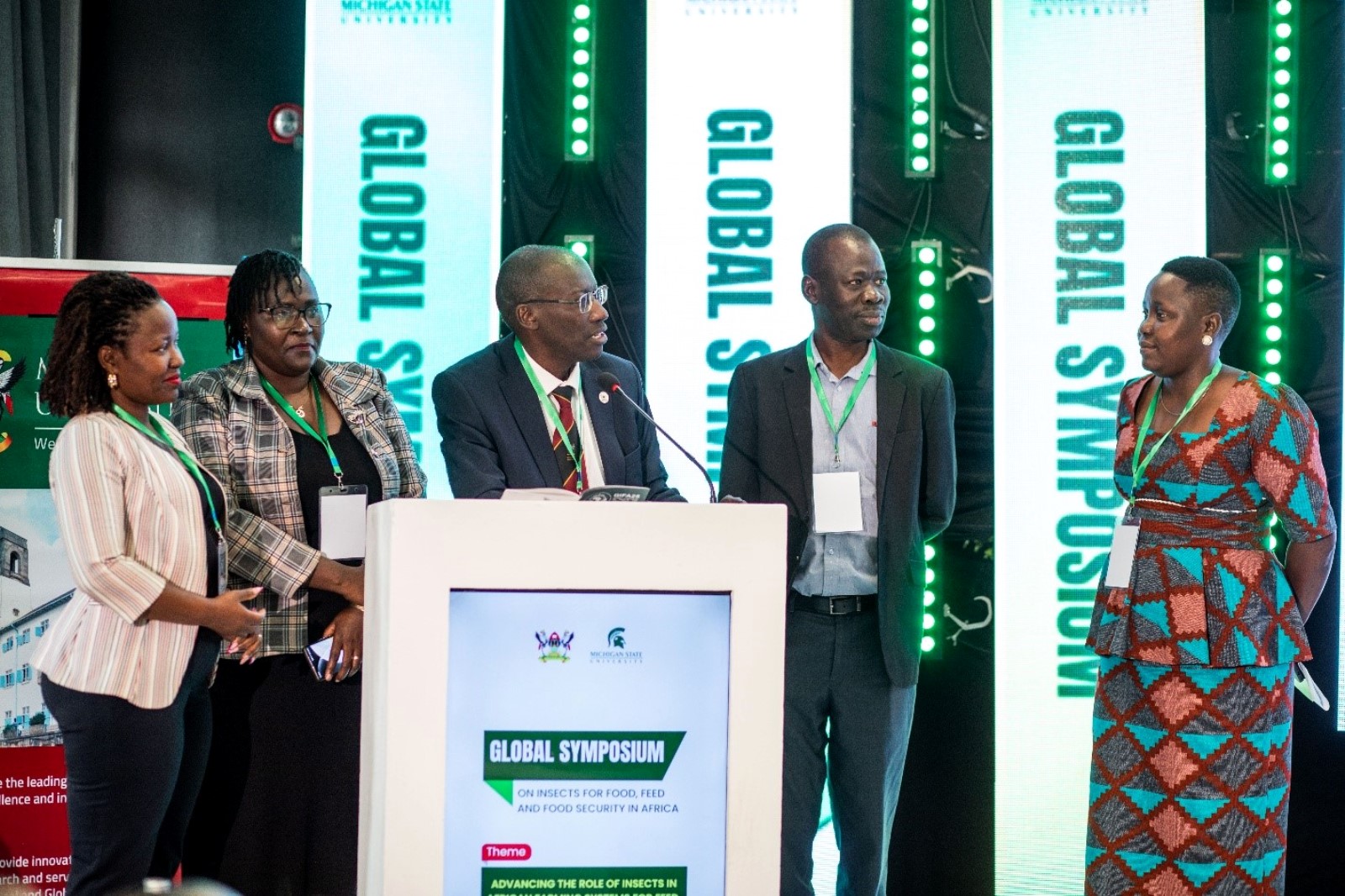
A groundbreaking symposium exploring the role of insects in African farming systems concluded on June 6th, 2025, at Onomo Hotel in Kampala. Convened by Makerere University’s College of Veterinary Medicine, Animal Resources and Biosecurity (CoVAB) in collaboration with Michigan State University (MSU), the event drew participants from over ten countries, including researchers, development experts, regulators, and practitioners.
Under the theme “Advancing the Role of Insects in African Farming Systems for Feed, Food, and Food Security,” the two-day gathering aimed to share knowledge and experiences on integrating insects into food and feed systems to address food security challenges across the continent. The discussions revolved around four key sub-themes namely; Insects as animal feed to promote sustainable livestock production and livelihoods; Insects for human food and food security, including indigenous insect-based diets; Insects for improved soil health and crop production and Commercialization of insect farming, with a focus on regulation and standardization.
The symposium commenced with opening remarks delivered on behalf of Makerere University’s Vice Chancellor, Prof. Barnabas Nawangwe, by his representative, Prof. Frank Norbert Mwiine, Principal of CoVAB. He welcomed participants and commended Dr. Deborah Amulen, Lecturer at CoVAB and chief convener, for organizing a well thought out event. He emphasized that the symposium would not only raise awareness of the role of insects in Uganda’s and Africa’s socio-economic development but also help place insects on the agenda for broader discussions and integration into food security strategies. He said the event served as a platform for knowledge exchange, highlighting the untapped potential of insect farming in transforming food security, sustainable agriculture, and economic growth.
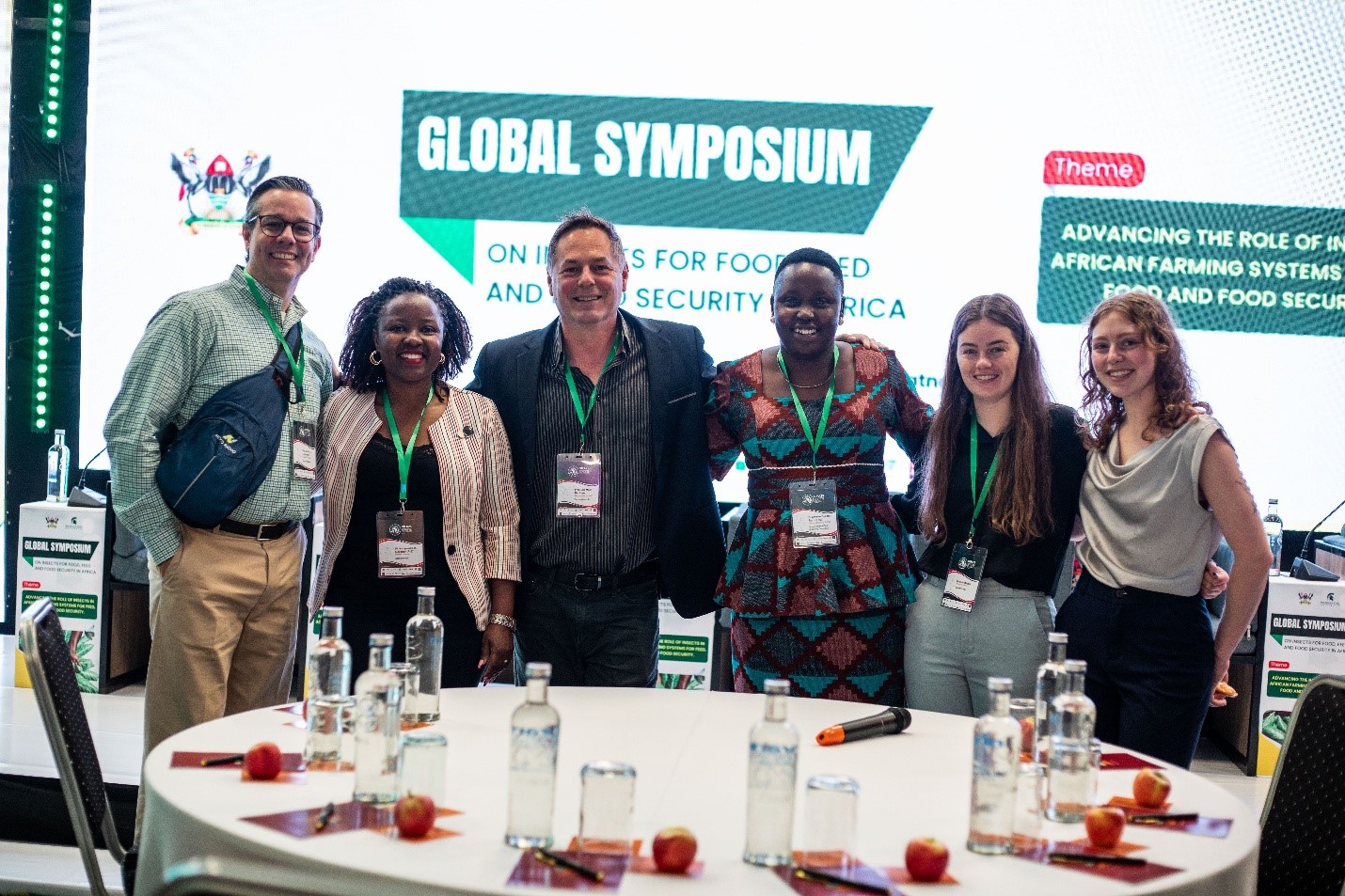
Key facilitators at the symposium were esteemed experts from leading institutions worldwide, who shared their insights on insect-based food systems and sustainable agriculture. Among the distinguished speakers were Prof. Jeffrey K. Tomberlin from Texas A&M University, Prof. Eric M. Benbow from Michigan State University, Prof. Florence Dunkel from Montana State University, Dr. Denise Beesigamukama, a Postdoctoral Fellow, ICIPE Kenya and Dr. Deborah Amulen the host from Makerere University. These are exemplified in their contribution towards academic research and leadership, policy and industry impact and more importantly their expertise in insect science.
During the deliberations, the experts emphasized that insects offer a viable, sustainable, and nutrient-rich solution to Africa’s growing food demands. The event underscored ongoing research and commercialization efforts aimed at mainstreaming insect farming into the agricultural sector. As global interest in alternative protein sources continues to rise, the symposium marked a significant step toward harnessing the potential of insects to enhance food security in Africa.
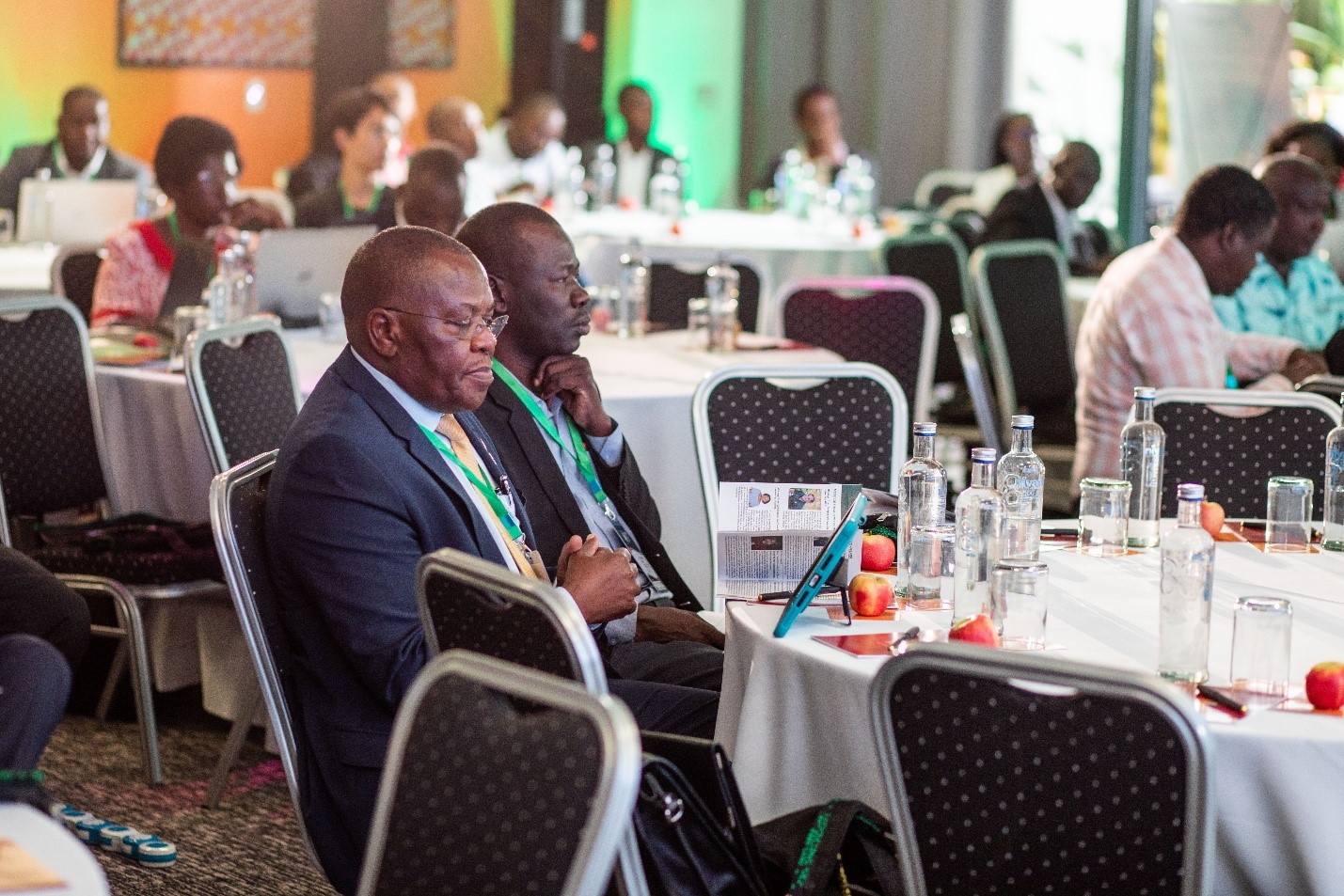
Experts underscored that Africa is home to over 470 recognized edible insect species, providing a rich source of proteins, fats, and essential micronutrients. Insects have historically been a staple in diets across Uganda, Southern Africa, and other regions, serving as a vital food source in times of drought, conflict, and food scarcity. One of the most discussed innovations at the event was the large-scale farming of Black Soldier Fly, which is being utilized to produce not only the larvae but also frass, a high-protein animal feed and organic fertilizer to enhance soil health and boost agricultural yields.
Several scholars presented their research in the area of Insects, where together with the farmers, industry representatives, policy makers and practitioners contributed valuable perspectives on advancing the role of insects in food security, animal feed, and ecological sustainability in Africa. Their discussions underscored the importance of research, policy, and commercialization in expanding insect farming across the continent.
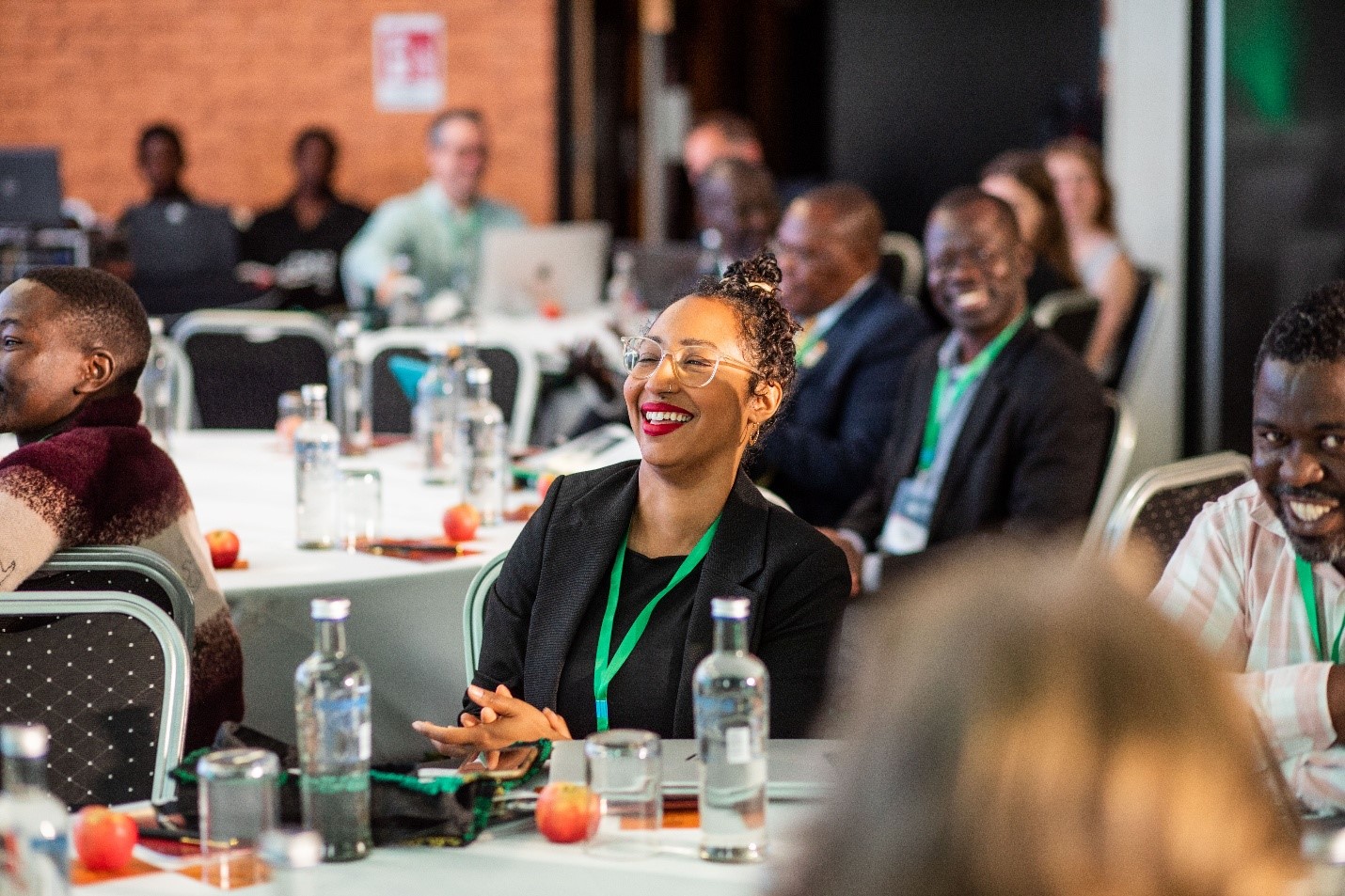
One of the keynote discussions highlighted Uganda’s rich tradition of consuming insects as part of its food culture, reinforcing their significance in nutrition and sustainability. Participants shared insights on local insect consumption practices and their role in livelihoods, drawing from countries like Cameroon, Malawi and many others represented at the event. The forum also featured representatives from key institutions, including the National Council for Science and Technology and The National Agricultural Research Organization (NARO) which contributed perspectives on research, policy development, and commercialization of insects as sustainable food sources, the Ministry for Agriculture, Animal Industry, and Fisheries (MAAIF), emphasizing the Ugandan government’s support for insect farming initiatives.
The Kenya based scientific research institute, the International Centre of Insect Physiology and Ecology (ICIPE) played a key role in the discourse and exhibited several innovations arising from research and their work in insects. Experts explored how insects can revolutionize animal feed production, providing an affordable, high-protein alternative to conventional sources.
With global attention shifting toward alternative and sustainable food sources, experts stressed the need for policy standardization and enhanced investment in insect-based food systems across Africa. During the event, MAAIF announced a $325 million investment through a six-year Smart Agriculture Transformation Project, aimed at expanding sustainable farming practices, reducing environmental impact, and increasing food security through alternative protein sources.
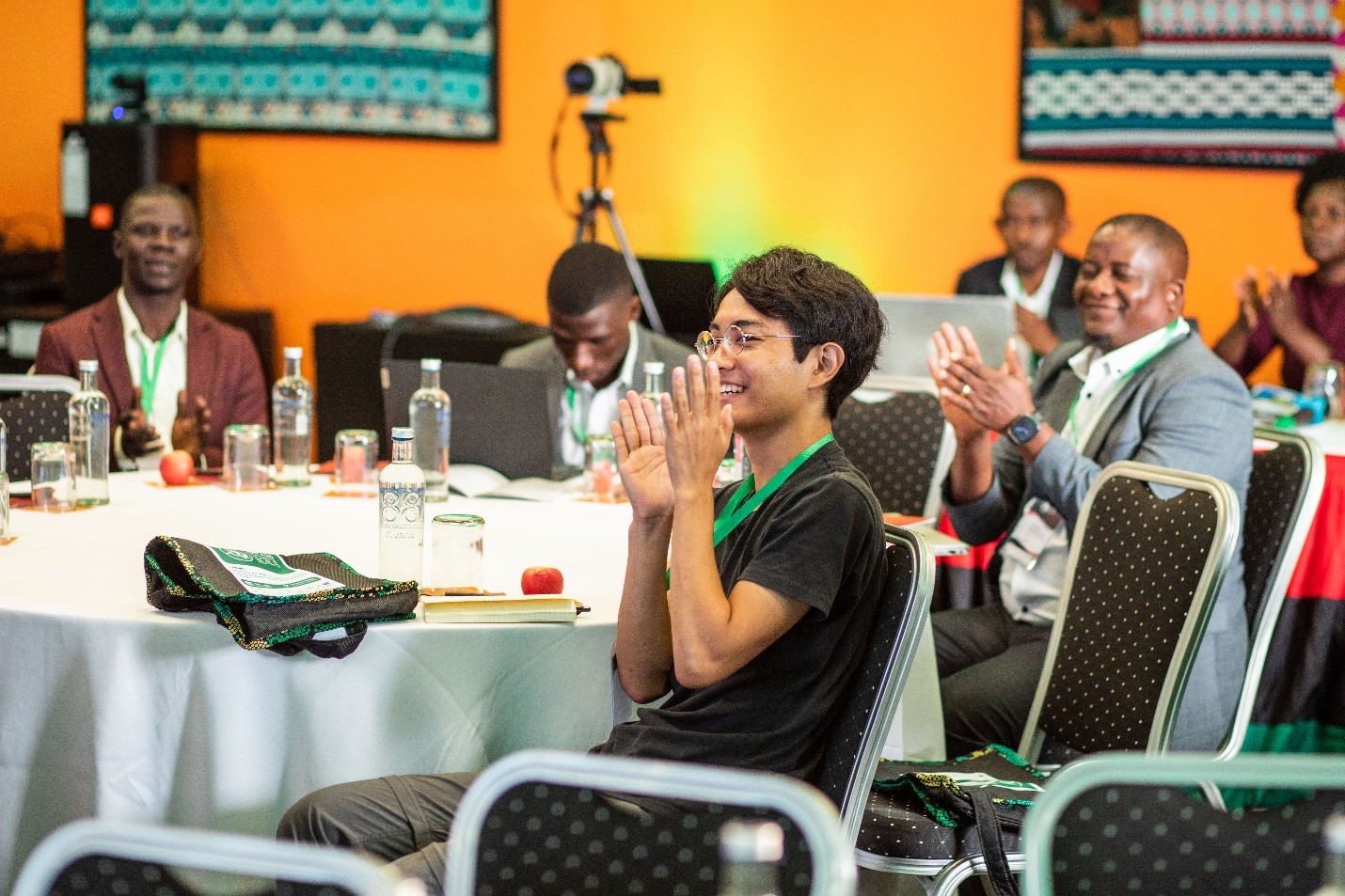
The symposium reaffirmed Africa’s position at the forefront of insect farming research, with discussions centered on scaling production, improving regulation, and leveraging indigenous knowledge for food security solutions. Moving forward, participants emphasized the importance of quality control, standardization, and policy frameworks to ensure safety, scale production, and boost market competitiveness. With Uganda leading discussions on alternative protein sources, the symposium laid the foundation for future innovations in agriculture.
Veterinary & Biosecurity
Makerere Receives Scientific Equipment worth over UGX 1.4 Billion
Published
1 month agoon
June 10, 2025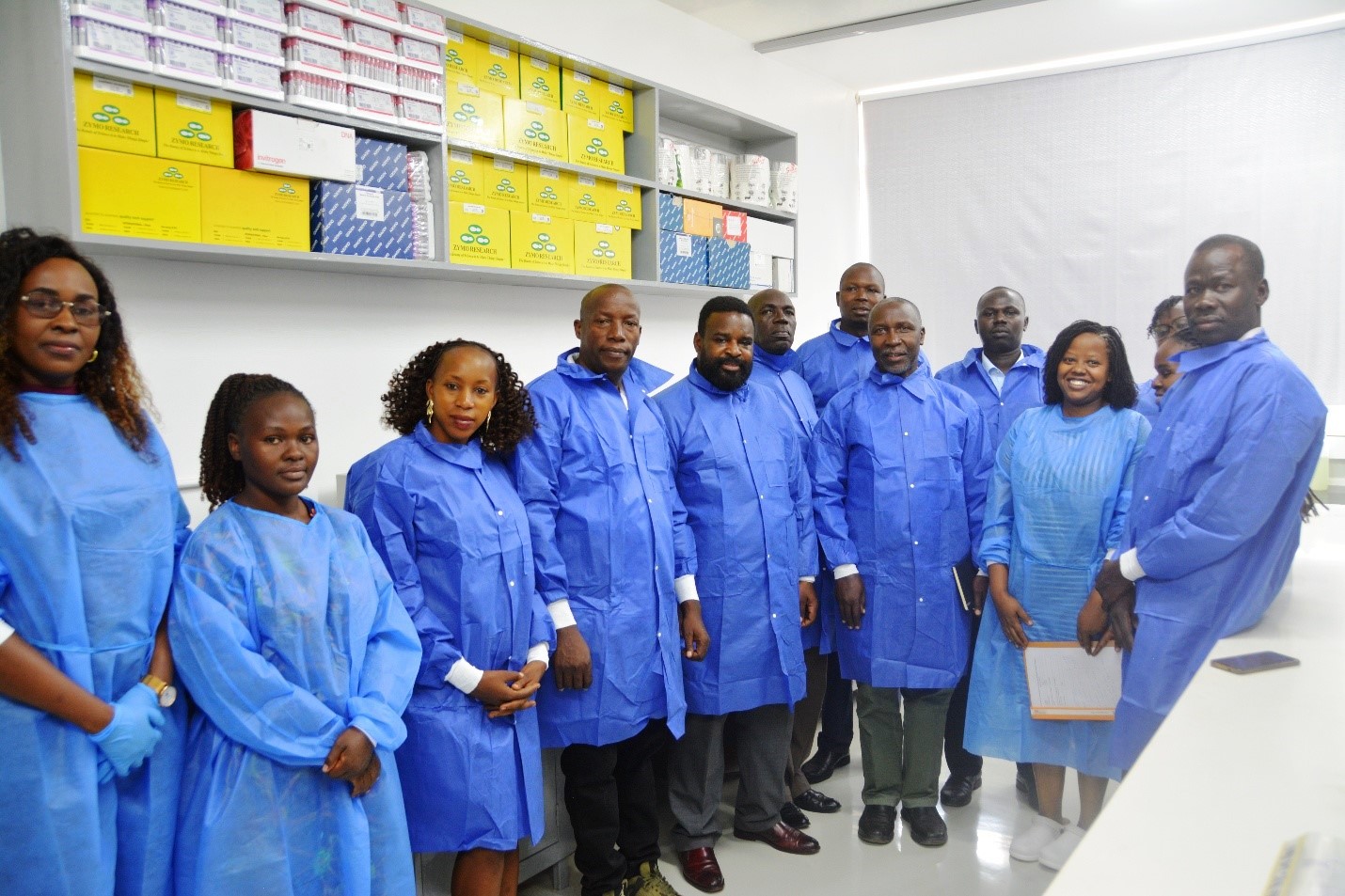
Makerere University has secured a valuable donation of scientific laboratory equipment worth USD 400,000 (Shs. 1.4 billion) through the Seeding Labs’ Instrumental Access Program. This equipment will significantly enhance teaching, research, and diagnostic services at the College of Veterinary Medicine, Animal Resources and Biosecurity (CoVAB).
Following the announcement of a successful application in May 2024, Makerere joins a global network of 137 institutions across 39 countries, gaining access to advanced tools that will elevate STEM education and innovation. This development strengthens the university’s commitment to scientific excellence and fosters collaboration in veterinary medicine and related fields.
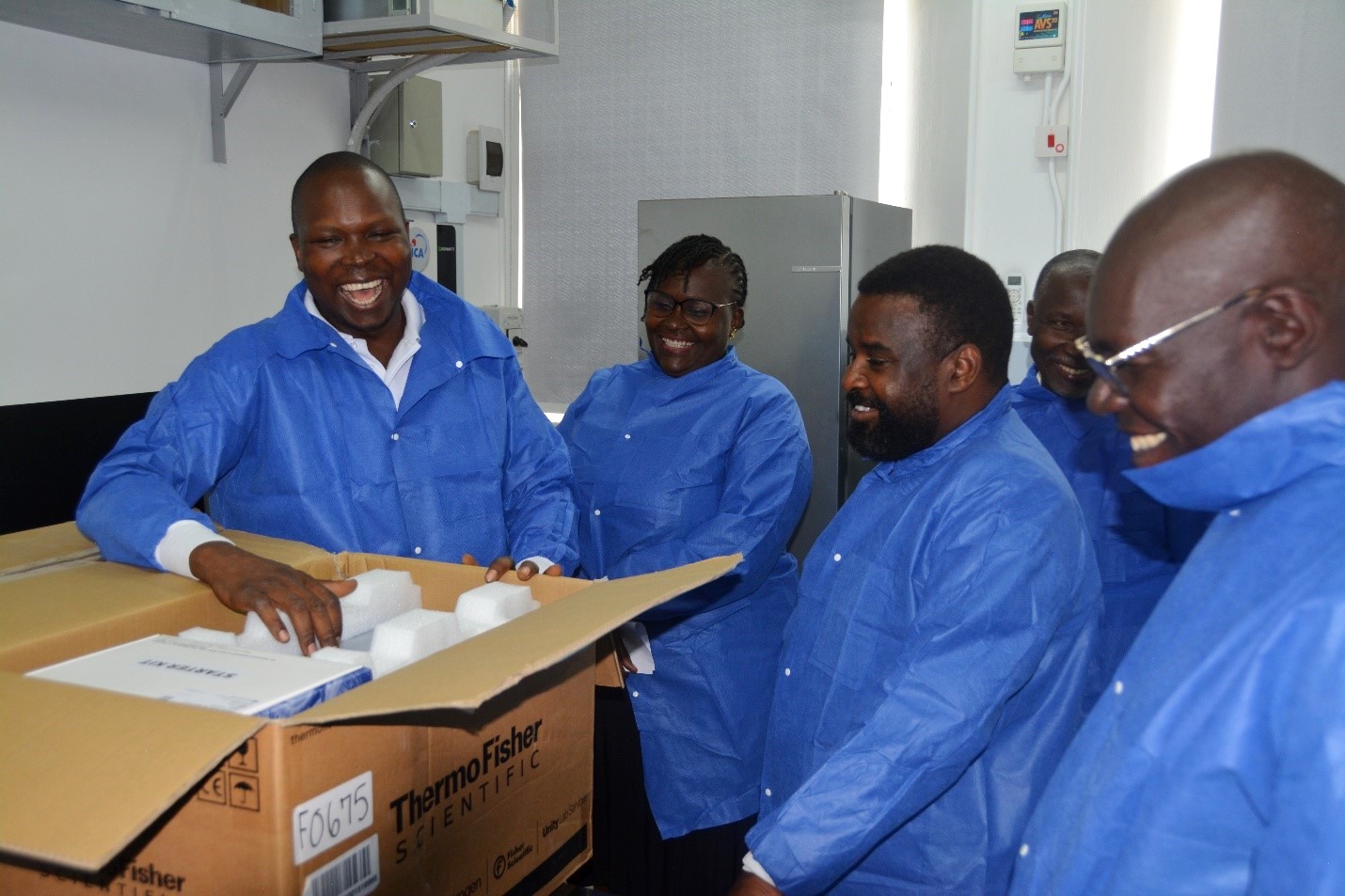
The consignment was received at the College of Veterinary Medicine, Animal Resources and Biosecurity and witnessed by Prof. Edward Wamala, who represented the Vice Chancellor, Prof. Barnabas Nawangwe. In his remarks, Prof. Wamala described the newly acquired scientific equipment as a significant milestone in Makerere University‘s pursuit of academic excellence, innovation, and impactful research. He emphasized its transformative role in strengthening research infrastructure, advancing ongoing scientific inquiry, and empowering both students and faculty to engage in high-impact studies.
Expressing appreciation to Seeding Labs’ Instrumental Access Program for their partnership, he underscored that this contribution was more than a donation, rather an investment in the future of Uganda and Africa at large. He highlighted that the support reflects confidence in Makerere’s students and scientists, recognizing their responsibility to address pressing global challenges in animal health, biosecurity, and public health.
Prof. Wamala further noted that the College of Veterinary Medicine, Animal Resources, and Biosecurity plays a vital role in addressing issues at the intersection of human, animal, and environmental health which is the core of the One Health approach that is emphasized today. With the newly acquired equipment, the college’s capacity will be greatly enhanced, improving diagnostic capabilities, supporting the livestock industry, and contributing to disease surveillance efforts at both local and national levels, he noted.
The Deputy Principal CoVAB, Assoc. Prof. James Okwee-Acai said the equipment received is a significant milestone in the college in its efforts to strengthen science and research capacity. He commended the management of Makerere University for the contribution and support that enabled the shipment and clearance of the consignment. While commenting about the equipment contained in the donation, Prof. Acai said many of items were state-of-the-art and would definitely boost the work of teaching and learning at the college across the two schools.
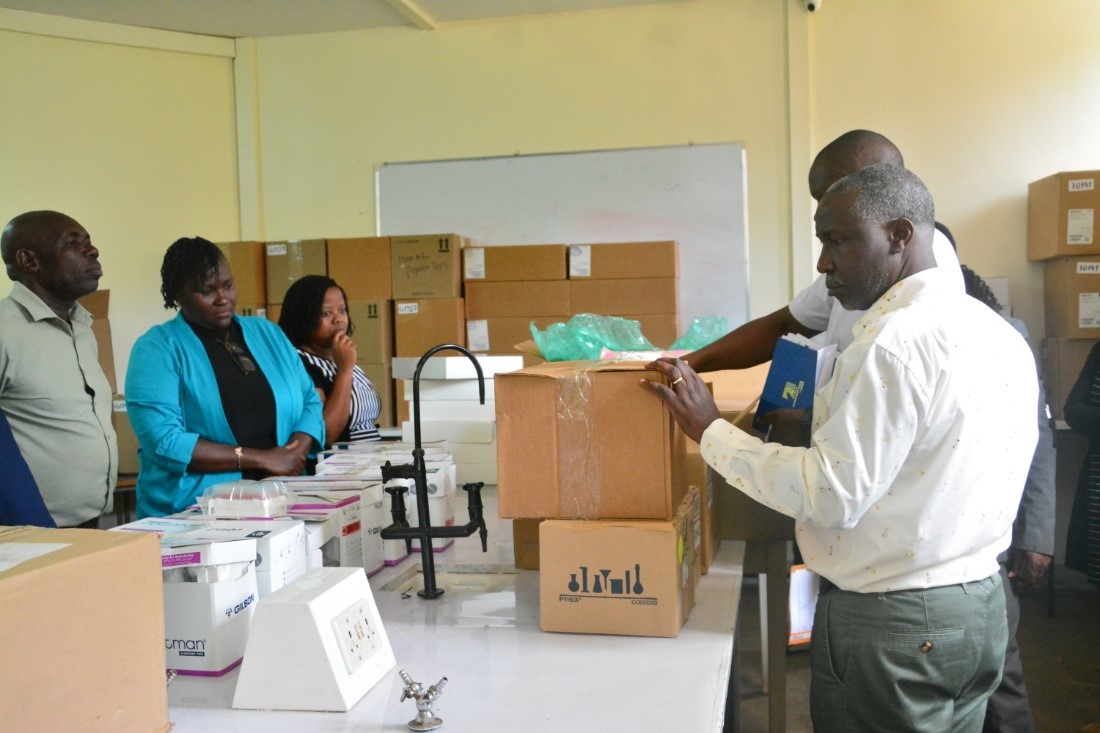
The equipment is expected to greatly enhance the University’s ability to conduct cutting-edge research and provide high quality education in the veterinary sciences. This donation showcases the growing partnerships and collaborations that Makerere University is building to drive innovation and academic excellence. With this valuable addition to its research infrastructure, Makerere University is poised to make even greater strides in advancing scientific knowledge and addressing critical challenges in the veterinary field and looks forward to the transformative impact it will have from training students on the latest analytical techniques to enabling faculty led studies that advance veterinary medicine.
The donors, the Instrumental Access is the flagship program of Seeding Labs, which is a US-based NGO with a mission to increase access to resources for science in developing countries. CoVAB’s participation in Instrumental Access makes Makerere University a member of the community of 137 Instrumental Access awardees in 39 countries worldwide.
The Department of Veterinary Pharmacy, Clinical and Comparative Medicine, Makerere University was chosen for the Instrumental Access award after a rigorous and competitive selection process that receives and evaluates applications from institutions around the world. To be considered, applicants outlined the ways that an infusion of scientific equipment would remove barriers to STEM education and research at their institution, paving the way for new avenues of scientific inquiry and expanding hands-on opportunities for students.
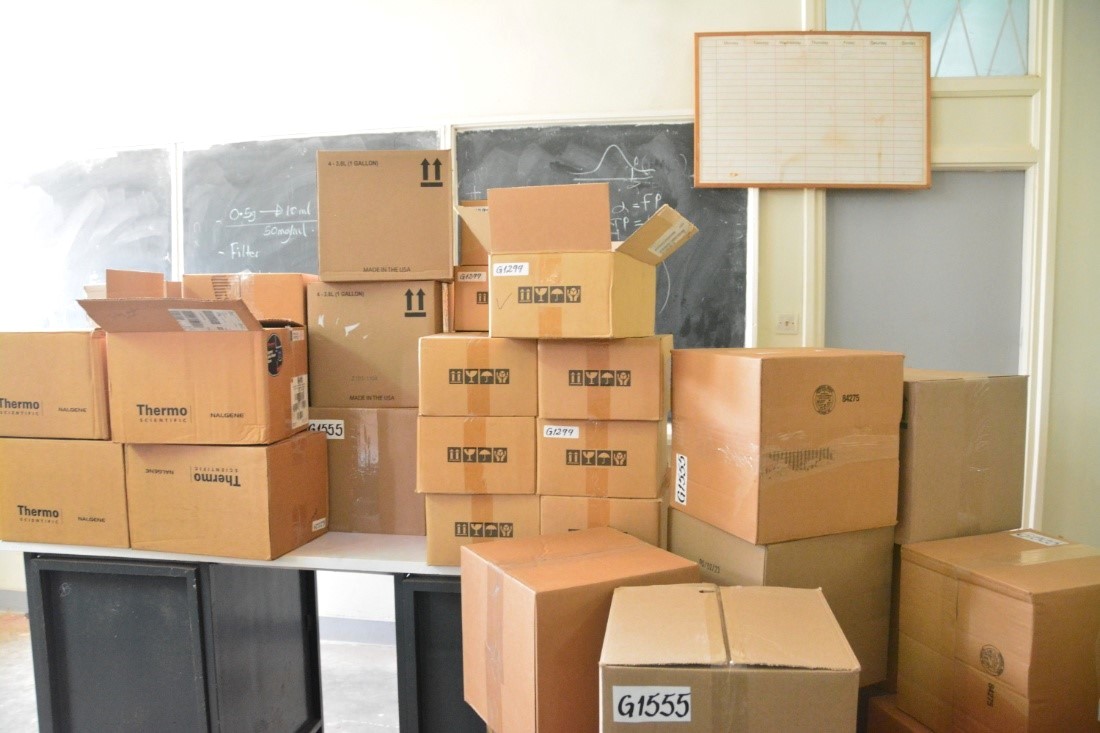
The equipment will provide a foundation for other critical resources that allow scientists to generate new knowledge, leverage sustainable funding, and better prepare university students for the scientific workforce and innovation economy.
More photos from the unveiling
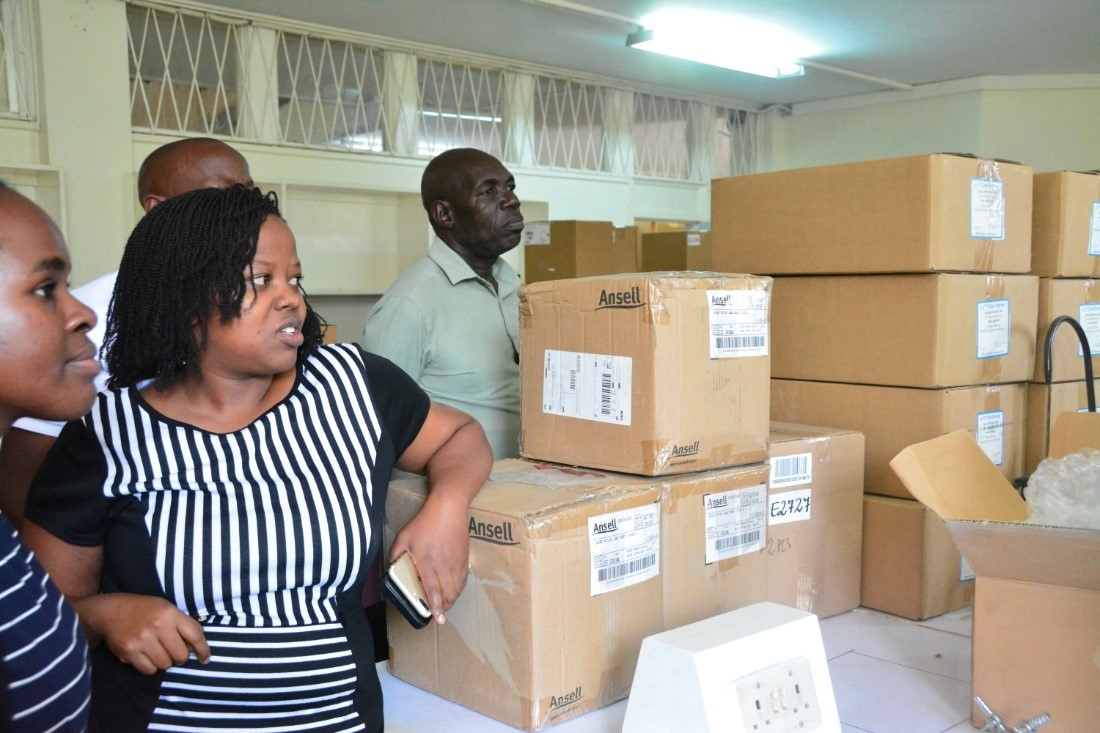
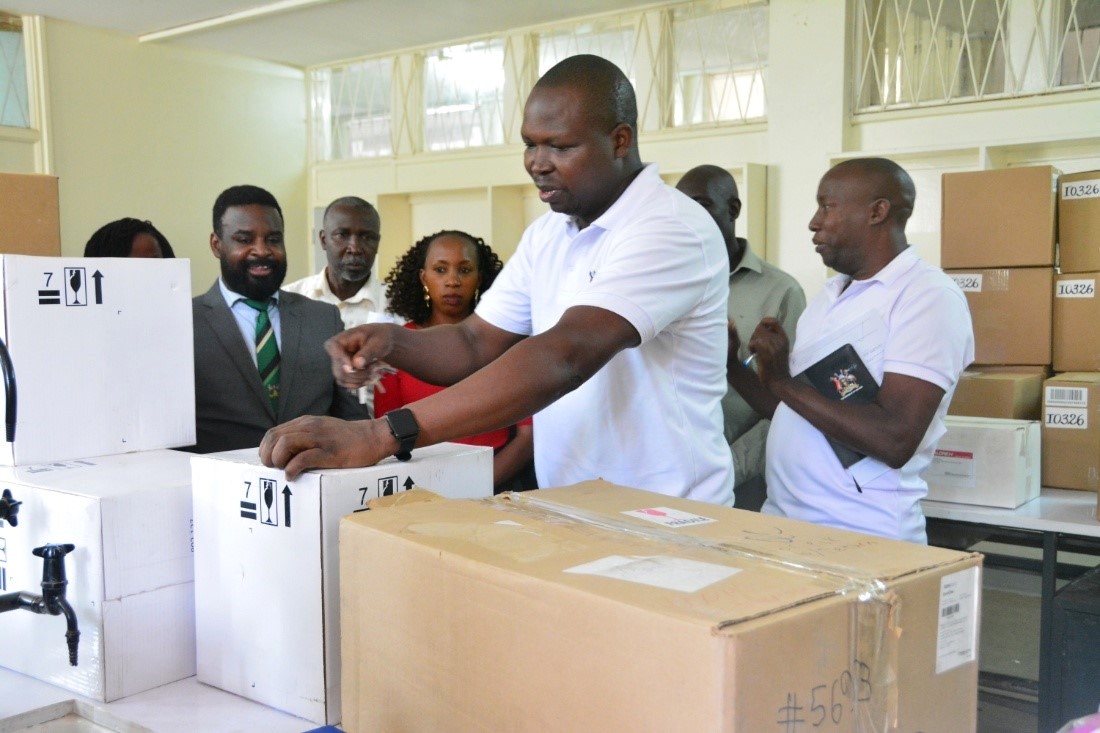
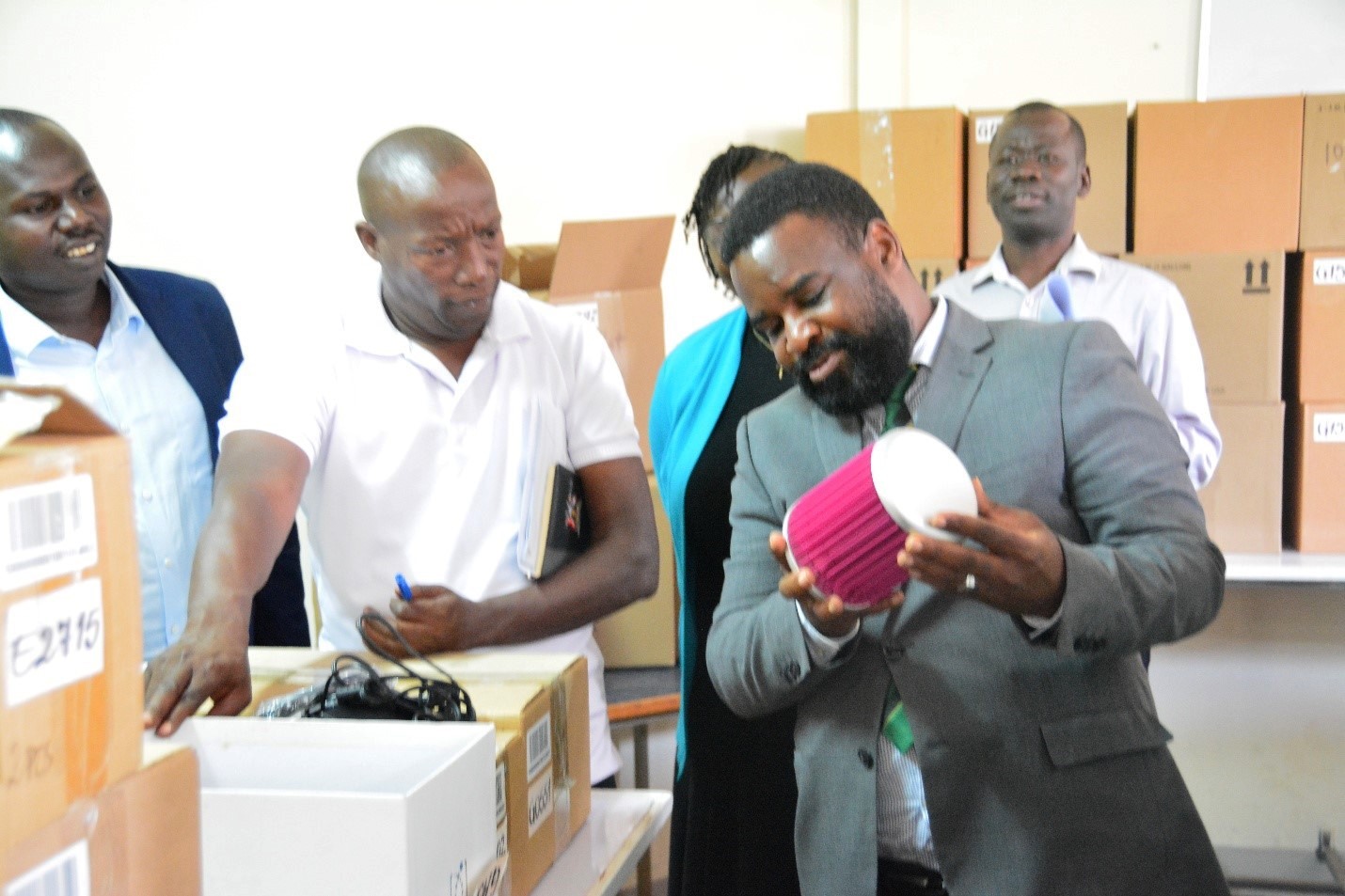
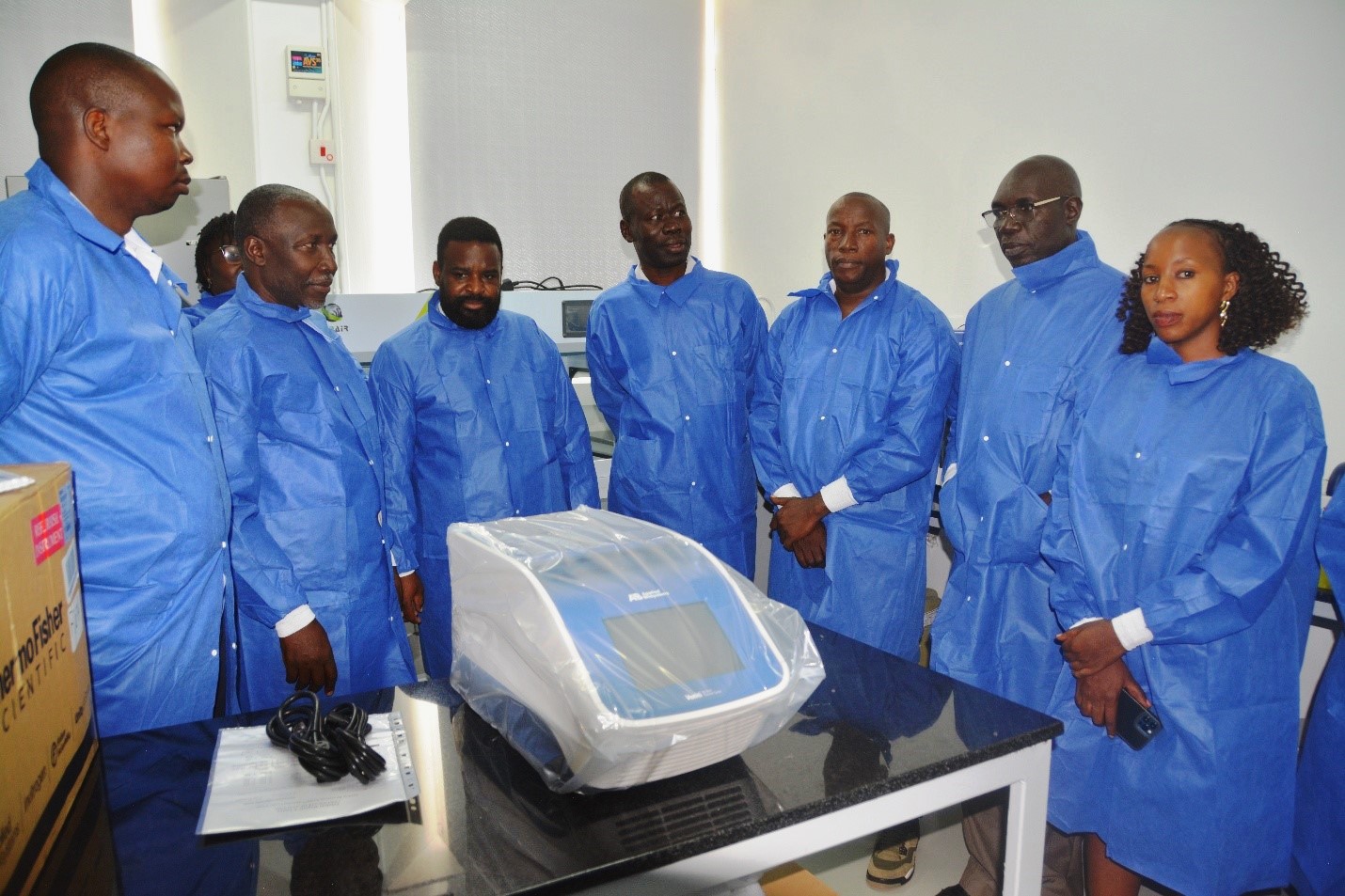
Trending
-

 General2 weeks ago
General2 weeks agoRe-advert: Admission to Undergraduate Programmes 2025/2026
-

 General1 week ago
General1 week agoRe-Advert for Applications for Diploma and Certificate Training
-

 General5 days ago
General5 days agoMakerere University Fees Waiver for 40 First Year Female Students 2025/2026
-

 General2 weeks ago
General2 weeks agoPress Statement on Ranking
-

 Health1 week ago
Health1 week agoCall for Applications: Responsible Conduct of Research (RCR) Training Course
